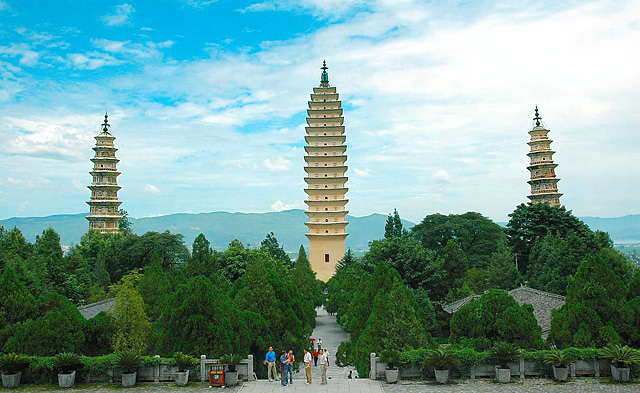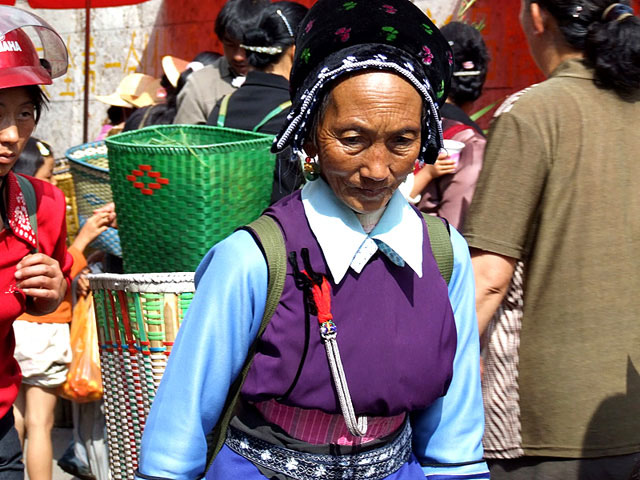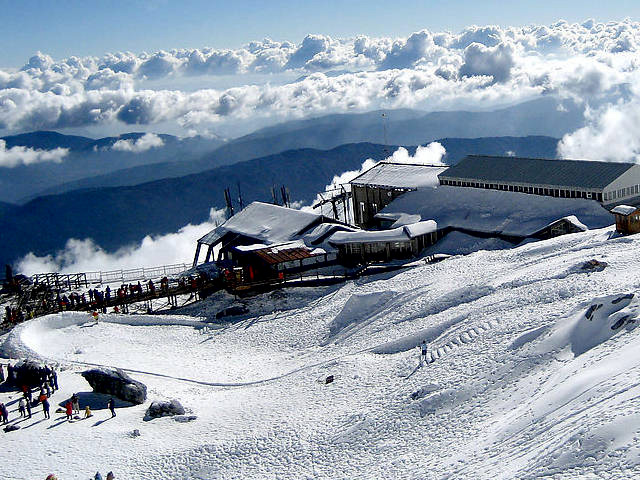Dali Ancient Town
Dali Ancient City is one of Yunnan's most popular tourist destinations. It has historic sites, ancient buildings and temples, nearby beautiful Cangshan Mountain and Erhai Lake, local crafts, and the "Foreigners' Street" with Western-style restaurants and bars and English-speaking business owners. The street is popular with both foreigners and Chinese. It is known as a backpackers' haven. Cangshan Mountain is a great, scenic hiking area and a natural reserve. Erhai Lake is to the east and Cangshan Mountain is to the west. Tourists visiting the area can see temples and architecture 1000 years old, buy beautiful souvenirs and objects of art, learn about the history of the area and of the native peoples, and go on excursions to the nearby lake and mountain.
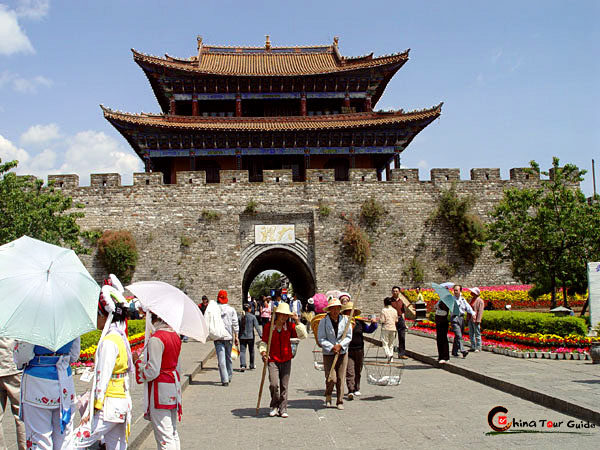 |
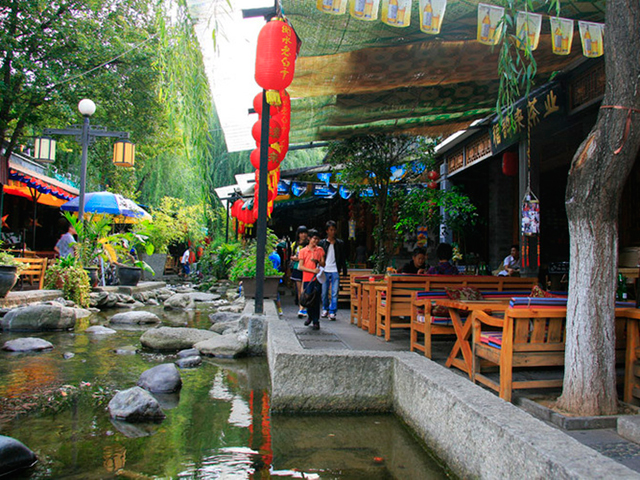 |
| Entrance of Dali Ancient Town | A river running across this old town |
The city has a long history. About the year 738 AD, it became the seat of the Kingdom of Nanzhou. The Nanzhou Kingdom had control of important trade routes to Southeast and South Asia. Its location enabled Dali to prosper as merchandise from China was carried southwards, and as goods from as far as India was carried northwards. It was a major trading center. The rulers of the Nanzhou became Buddhists, and Bali became a center for the spread of Buddhism from Southeast and South Asia to the rest of China and East Asia. After two hundred years, The Nanzhou Kingdom was conquered by the Duan Clan. Two hundred years after this, in 1253, the Mongols conquered the city and ended the Dali Kingdom. Under Mongolian Emperor Kublai Khan, Dali became an important military outpost for the Mongolians. The Mongolians in turn were defeated, and the Ming dynasty was established.
The local customs and architecture is distinctive. A stroll through the ancient city with its stone paved streets, traditional style houses, and numerous gardens is an interesting excursion. The local people love growing flowers. There is an annual Flower Festival. Families display their potted plants in front of the houses. Tourists appreciate this festival. The local food ethnic food and teas are different than that consumed in most of China. Some people from other parts of China and from around the world who are entrepreneurs, craftsmen, artists, musicians, and tourist agents live in Dali for a period of time.
Select Other Favorite Attractions
| Recommended China tours with Yunnan | |||||||||||||
|
|||||||||||||
|
|||||||||||||
|
|||||||||||||
|
|||||||||||||
Guide for Lijiang tour, offers most value & amazing experience. In China, you can rely on us
Copyright © 2001 - 2025. All Rights Reserved to ChinaTourGuide.Com
Hotel Guangzhou | Guizhou Tours | Hong Kong Hotels | 香港酒店 | 广州酒店 | 广州会议酒店 | 会议酒店
Guide for China tours, offers most value & amazing experience. Chinatourguide.com. Your reliable China tour agency.


